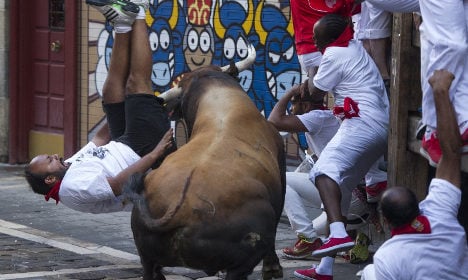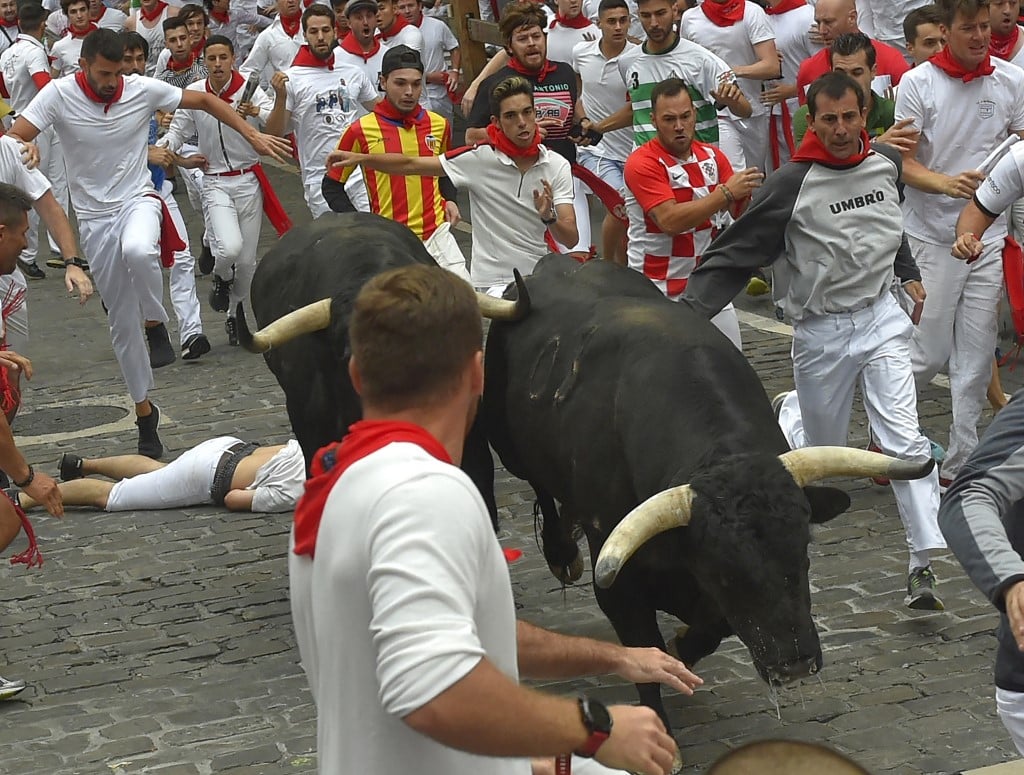After a relatively calm first bull run on Thursday, the San Fermin’s second running of the bulls for 2016 was described as chaotic, dangerous and long.
In pics: Pamplona turns 'war zone' for Friday bull run
The first goring took place only a matter of seconds into the run while the pack of rampaging animals quickly split up as some bulls decided to chase individual runners.
Only two of the bulls involved in the exceptionally long run were kept under relative control, while Spanish media outlets described the ensuing chaos as like a war zone.
Al menos 5 heridos por asta en el primer encierro, pero se prevén más. Terrorífico encierro. https://t.co/jXA1Nf2vRu pic.twitter.com/MCqBfJK2zs
— Sanfermin.com (@sanferminlive) July 8, 2016
While six people were gored, it could have been worse. At one point, a bull looked set to charge two runners and gore them with its horns only to be stopped when a fellow bull confronted the animal, according to Spain’s El País newspaper.
On their official website, event organizers rated Friday's “crazy” bull run an incredibly dangerous 90 out of 100 and noted it was the most dangerous run since July 12th, 2007 when seven people were gored.
Five people were injured during the first bull run on Thursday, one of them seriously, but none were gored.
SEE ALSO: A survivor's guide to running with the bulls in Pamplona
At least 16 people have died in the bull runs made famous by Ernest Hemingway, with the most recent death coming in 2009.
Before this year's event, organizers were keen to stress participants could die.



 Please whitelist us to continue reading.
Please whitelist us to continue reading.
Member comments